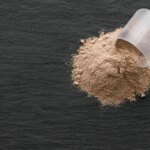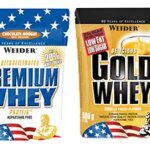Afrontémoslo, el desarrollar muscular es difícil, sin importar qué tipo de alimentación sigas. Y puede ser todo un desafío cuando se busca un desarrollo muscular en deportistas veganos. Sin embargo, no es imposible, simplemente hay que conocer ciertos detalles para poder alcanzarlo.
1. Calories
It is very important that the caloric intake is greater than your body requires. In other words, if your total calorie requirement is 2000 calories, you should ideally consume more calories to gain muscle.
However, in order to determine which foods will help you the most, it is important to to take into account not only calories, but also also nutrient density.
2. Calorie vs. nutrient density
The nutrient density of a food is the amount of nutrients in a food en “X” cantidad de calorías. Los nutrientes le dan a tu cuerpo nutrición, lo que permite el crecimiento, la recuperación muscular, la energía y, francamente, el mantenimiento de la vida. Piensa en vitaminas, minerales, aminoácidos, antioxidantes, fibra, agua, óxido nítrico y otros fitonutrientes.
En pocas palabras, todo esto se puede encontrar en los alimentos. Ahora, hay una profunda diferencia entre comer 2.500 calorías de una alimentación basada en frutas, verduras, legumbres, granos, nueces y semillas, y comer 2.500 calorías de sustancias procesadas similares a alimentos, como patatas fritas, pizza, dulces y helados. Puedes estar comiendo 2,500 calorías de cualquier manera, pero el resultado nutricional es muy diferente.
Therefore, nutrient-rich foods provide a greater return on investment than foods that are high in calories but low in nutrients.
In fact, there is a ANDI score which is an easy way to measure the nutrient density of the foodThe higher the number, the higher the nutrient content.
| Food | ANDI score |
|---|---|
| Arugula | 604 |
| Potato | 181 |
| Carrot | 458 |
| Peanut butter | 51 |
| Apple | 53 |
| Chicken breast | 24 |
Para determinar la puntuación ANDI, se evaluaron los siguientes nutrientes: fibra, minerales, calcio, hierro, magnesio, fósforo, potasio, zinc, cobre, manganeso, selenio, vitaminas y los fitoesteroles.
3. Alimentos básicos para el desarrollo muscular in vegan athletes
These are the ones that will provide you with the calories you need, will replenish muscle glycogen stores and are also nutrient-dense..
- Oats
- Potatoes
- Legumes
- Frutos secos
- Rice
- Bananas / other fruits
- Dates or dried fruits
4. Proteins
We know that the sources of proteins of plant origin are incomplete because lack essential amino acids and contain less branched-chain amino acids (BCAAs) than proteins of animal origin.
However, the false belief of combining plant-based protein sources at every meal to achieve a complete amino acid profile is long gone, but if it is important that there is sufficient variety in the sources of protein consumed every day.
Now, plant-based protein is less bioavailable, so vegan athletes may need to consume more protein than recommended.
Therefore, foods such as grains, legumes, nuts and seeds should be included in the vegan diet to ensure that all essential amino acids are present. Pumpkin seeds, lentils, black beans, almonds, tempeh, tofu, etc. However, with a few tips you can increase your intake:
- Adding protein powder to your smoothie. (10-15 g protein from Vegan protein)
- Eat whole wheat toast with peanut or almond butter as a snack (17 g protein).
- Plenty of lentils (18 g protein per cup)
- Hummus for an afternoon snack (10 g protein)
- Put nuts in your salad or eat them just as a snack (5-6 g protein per handful).
- soy products, such as tempeh or textured soybeans (30 g protein per cup)
5. Suplementación
For optimal muscle development in vegan athletes, supplements may be necessary to make the process easier.
Interestingly, the data indicate that the supplementation with creatine may be most beneficial for athletes with low pre-existing muscle creatine stores, such as vegan athletes.s.
Creatine supplementation can increase muscle creatine concentrations by 10-30%, and phosphocreatine by 10-40%, providing more phosphate to combine with ADP, in other words, it can increase muscle creatine concentrations by 10-30%. can produce more energy and delay fatigue for a second or two.
The benefits most commonly found in the studies are:
- An improvement in high-intensity exercise.
- Increased muscle mass when combined with strength exercises.
- Improves muscle glycogen storage
- It slows or decreases muscle damage, and improves recovery after a hard workout.
In reality, the diet to achieve muscle development in a vegan athlete is very similar to that of an omnivorous athlete, with the difference that Ideally, you should vary your proteins and foods widely in order to get all the nutrients.






